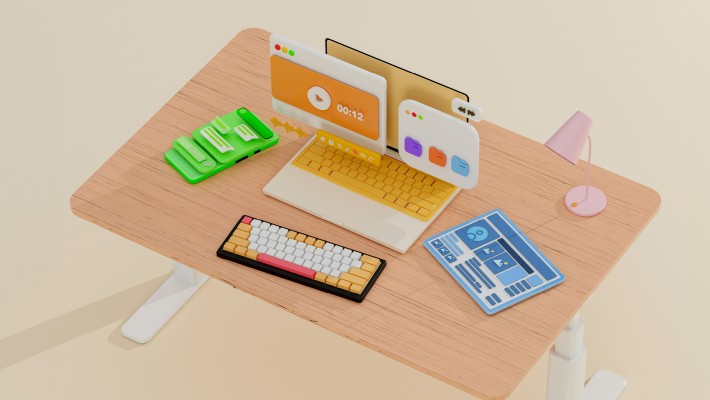Leading the Tech Wave to Teach Digital Natives
An award-winning PolyU project is transforming education into a dynamic, learner-centred experience that fits the way this new generation thinks
Digital natives—millennials and the generations to come—grow up with modern technologies such as smartphones, computers and social media. How these “native speakers” of the digital language learn, and how to teach them, is becoming a special challenge to educators who might not speak the language as fluently.
At PolyU, a team of scholars has come up with a pedagogy, creatively mediated by technology, to engage and empower these digital natives for effective teaching and learning outcomes. They have embraced innovative tools, such as AI and instant messaging, to develop teaching approaches that fit the way this new generation thinks and processes information.
Creating a smart omni-campus
One example is the PolyU Smart Campus Innovation project. Dr Rodney Chu, Senior Lecturer of the Department of Applied Social Sciences, and an interdisciplinary team of PolyU educators are exploring omnichannel solutions that integrate various methods of interaction with students.
Based on the three E’s—Engage, Empower, and Excel— the project addresses student expectations for instant feedback, visual engagement, and multi-tasking support. The goal is to enhance learning satisfaction and engagement by offering real-time experiences across digital resources.
The aim of this approach is to create a smart omni-campus that enables students to learn whenever and wherever. Embracing the TIMS framework—a novel pedagogy that consists of Technology Integration, Interdisciplinary Collaboration, Multi- Model Assessment, and Student Staff Partnership—it supports both enhanced and existing digital communications and learning tools. The result is a flexible, flipped classroom model that sustains the interest of students outside the traditional classroom setting.
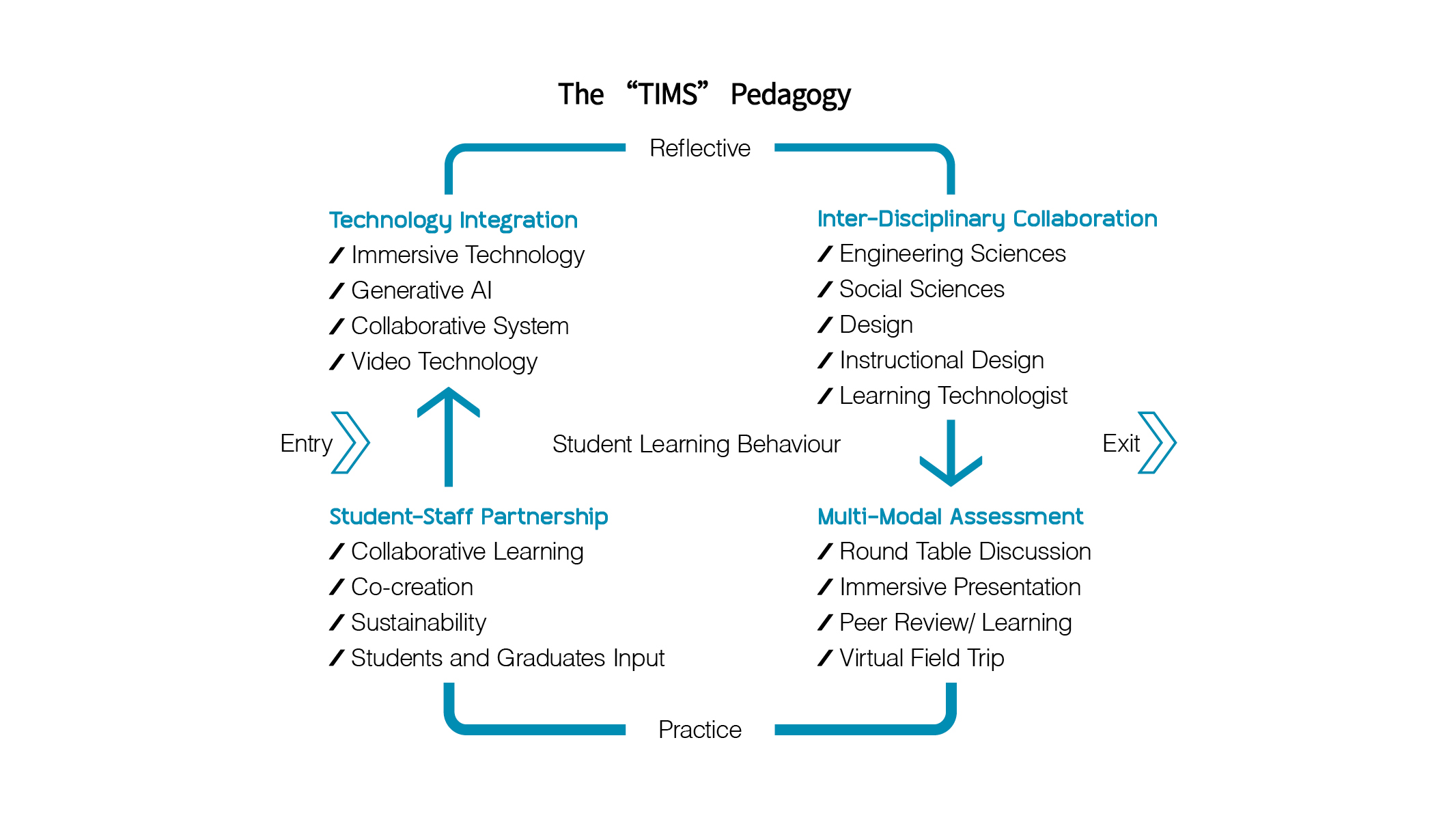
As educators, our primary focus is our students. Through this project, we strive to enhance collaboration with them to co-create an inclusive and impactful learning experience that drives strong learning outcomes.
~ Dr Rodney Chu
An AI-driven learning partner
To empower students to learn anytime and anywhere, it’s essential to understand and adapt to their learning habits. Digital resources and platforms, including Generative AI (Gen AI), podcasts and WhatsApp, have all been seamlessly integrated into teaching, learning and assessment experiences. This adaptive approach effectively meets the unique needs of each learner.
The Smart Campus Innovation project began with the creation of a GenAI chatbot called Virtual Assistant TIMS (VAT). It provides immediate responses through WhatsApp, allowing students to leave enquiries and access learning resources instantly. When necessary, they are redirected to one-to-one chatrooms with teachers. Teachers use course materials and video lectures to train the AI and ensure it remains relevant.
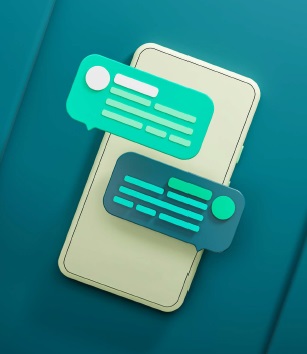 Click here to watch the Whatsapp demonstration
Click here to watch the Whatsapp demonstration
Virtual Assistant TIMS ( VAT )
| Features | Benefifits |
|
|
The project also includes an AI-generated audio podcast system. It provides an engaging learning experience by leveraging advanced natural language processing technology to transform academic content into informative dialogues. The podcasts help students with lesson preparation and revision by distilling handouts and video content into captivating episodes. The content not only supports students in their studies, but also sparks interest by providing complementary examples that enrich the lecture experience.
A built-in AI-assisted review assessment tool known as AIReAS, further enhances learning by enabling students to revise assignments based on immediate feedback. Such prompt insight, typically within one minute, fosters continuous improvement and motivates students to assess the AI’s suggestions, thereby cultivating their critical thinking skills. As a result, students submit more polished and refined assignments for evaluation, while simultaneously reducing the workload of their teachers.
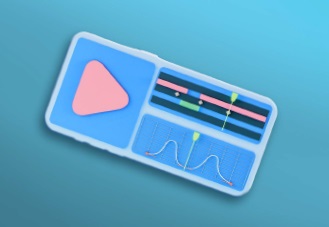 Experience the podcast here
Experience the podcast here
Interact, evolve and excel
The unconventional learning framework empowers students by enhancing engagement, boosting attention spans, and providing rapid feedback that deepens understanding. Students are encouraged to share their feedback and ideas, cultivating a collaborative environment that enriches teaching and learning experiences.
In this setting, teachers can harness AI as a dynamic learning partner, working alongside students to co-create knowledge and ignite stimulating discussions. Ultimately, this partnership among students, teachers, and staff will evolve into a thriving ecosystem where students and graduates play vital roles in the operation, enhancement, and sustainability of the framework.
International recognition
The project’s success has won international recognition, including the Gold Award in the Smart Omnichannel Campus category in the QS Reimagine Education Awards, which is known worldwide as the “Oscars of Education” to be held once a year. PolyU was not only the local institution in Hong Kong to receive a Gold Award in 2024. What is more, the same project also won the prestigious Global Education Award of the Year 2024, which was the first time for HK participants to win the highest level of award among 1,300 global submissions. Such achievements underscores PolyU’s commitment to transforming the teaching and learning experience and exemplify its status as an innovative world-class university.
Until now, TIMS as a framework has been applied to 17 subjects offered by the School of Design, the Department of Applied Social Sciences, the Department of Building Environment and Energy Engineering, and the Department of Electrical and Electronic Engineering. The number will continue to expand in the coming years. Collaborations with other higher education institutions in the U.K. and Canada are now underway to enhance its impact and reach.
Click here to learn more about the project.
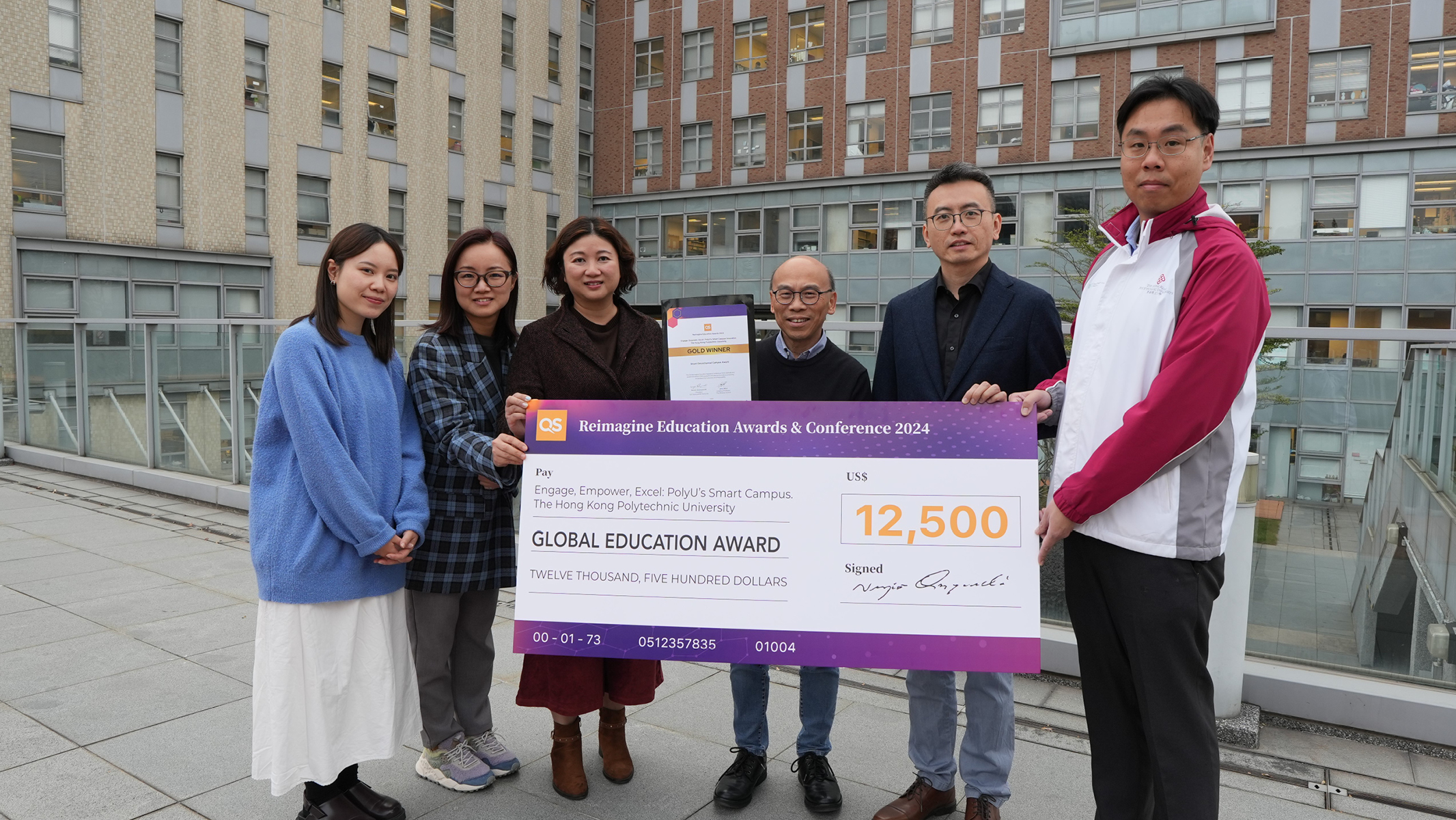
The winning team: (from right)
- Dr Mark Kai-Pan, Senior Educational Development Manager, Education Development Centre
- Prof. Jeffrey Ho, Associate Professor, School of Design
- Dr Rodney Chu, Senior Lecturer, Department of Applied Social Sciences (APSS)
- Dr Pauli Lai, Senior Lecturer, Department of Electrical and Electronic Engineering
- Dr Hilda Cheung, Lecturer, Department of Building Environment and Energy Engineering
- Miss Kathy Lam, Project Associate, APSS CAVE-cum-Studio Device member
- Mr Charles Woo, Project Fellow, APSS CAVE-cum-Studio [not in photo]



